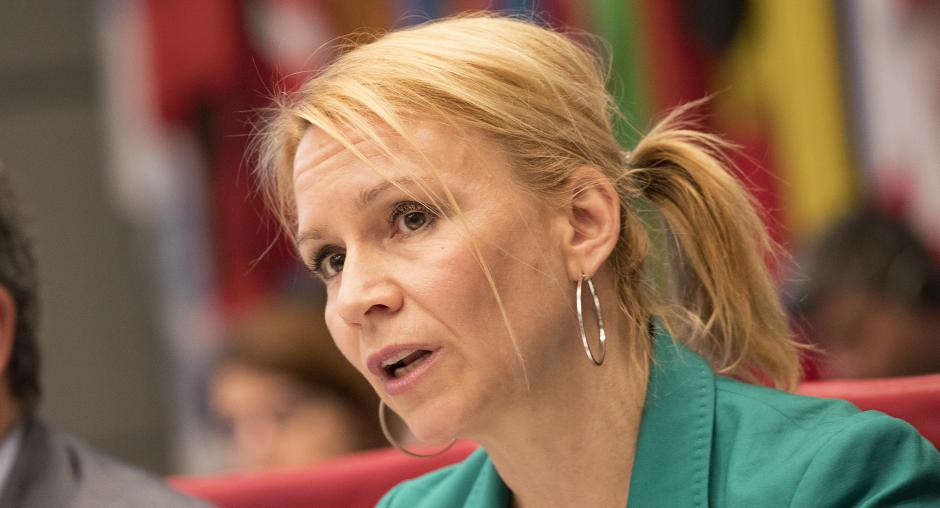Human rights education key to secure, inclusive societies, say participants of OSCE meeting

VIENNA, 8 October 2018 –Education is key to promoting human rights, peaceful coexistence and security in the OSCE region, participants said today at the opening of a two-day OSCE meeting in Vienna.
This Supplementary Human Dimension Meeting, organized by the Italian OSCE Chairmanship, with the support of the OSCE Office for Democratic Institutions and Human Rights (ODIHR), focused on human rights approaches in education policy, how new technologies can be leveraged for human rights education and how the effective enjoyment of the right to education can foster peace and security.
“Through human rights education we can help ensure that individuals act in a responsible manner, enhancing peaceful and inclusive societies,” said Ambassador Luca Fratini, Deputy Permanent Representative of Italy to the OSCE, on behalf of the Italian OSCE Chairmanship.
Katarzyna Gardapkhadze, First Deputy Director of ODIHR, said: “What was once considered the domain of human rights and civic education has now become an indispensable mainstream. Top education experts around the world today agree that the must-have skills for our dynamic world include communication, collaboration and teamwork, leadership and responsibility, global and cultural awareness, civic literacy and citizenship. We need to make sure that education systems do not stay in the past, but equip our 21st century children with skills to become active, responsible and engaged citizens.”
In the keynote address, Kaari Mattila, Secretary-General of the Finnish League for Human Rights, told participants: “In times when human rights are increasingly questioned across the world, we need to ensure that people know what human rights are. Teachers and schools are in an important position − they can either reproduce existing hierarchies and injustices, or dismantle them. With human rights education, they are better equipped for the latter.”
The meeting brought together some 120 representatives of governments and civil society organizations working on issues related to human rights education from the Organization’s 57 participating States to explore innovative policy initiatives and the use of new technologies to support human rights and access to education.
